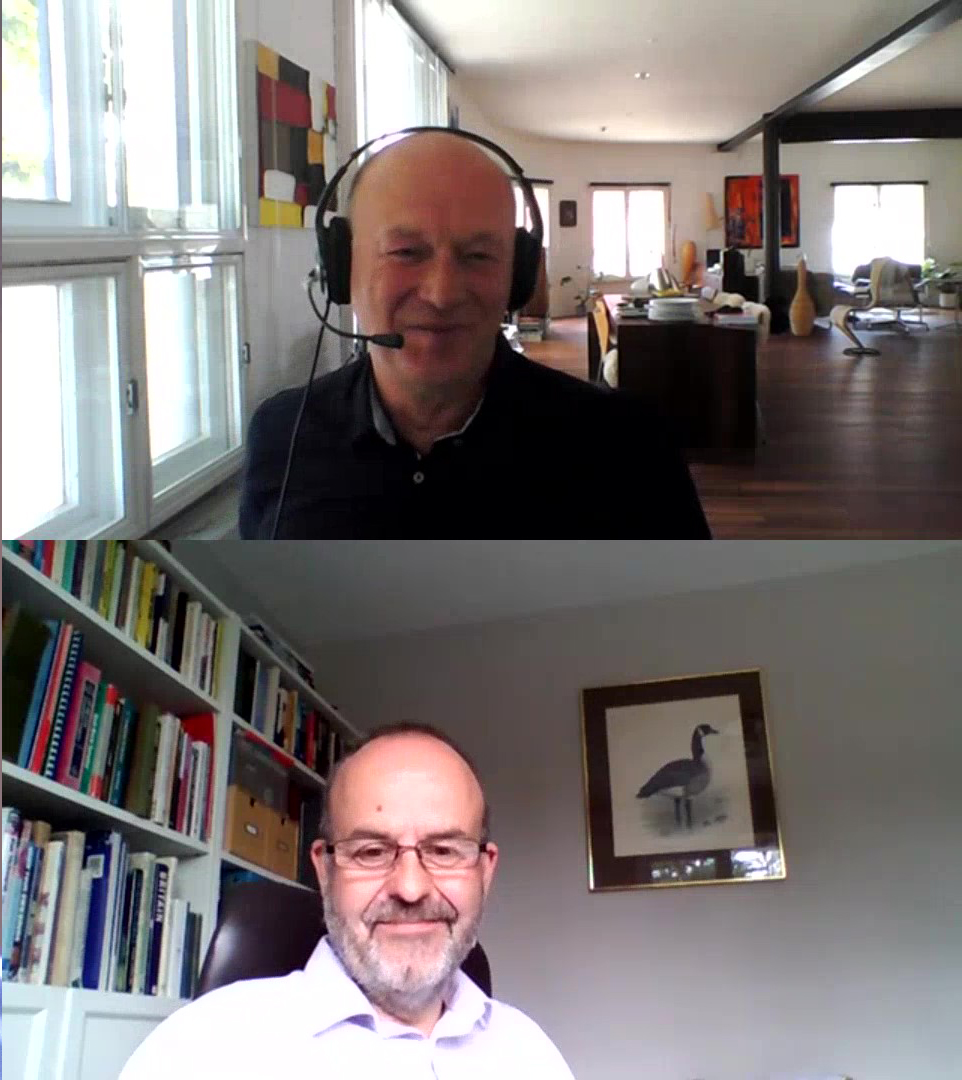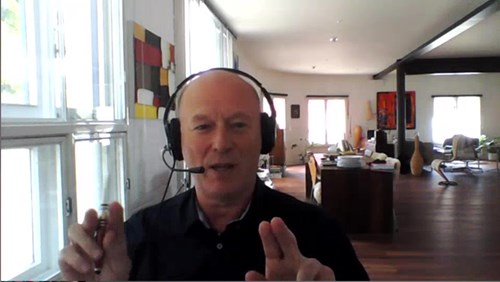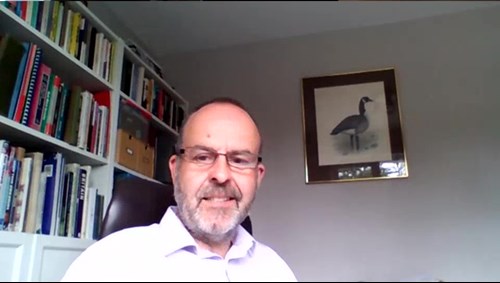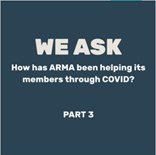The ARMA interview: We asked Nigel Glen how ARMA has been helping its members during COVID
Posted 01 September 2020

Crabtree is a member of ARMA with close ties to the organisation via CEO, Nigel Glen. We asked Crabtree's MD – Chris March to join Nigel in an interview, for a rundown of how ARMA has been coping with COVID-19 and how it has been helping its members. With this, we bring you a direct insight into the industry's highs and lows, some of the challenges that have been overcome and what will be taken forwards into future business practice.
If you’d like to watch the interviews, use the links below:
How has ARMA's global connections helped the UK's experience with COVID?
NIGEL: I attended a conference in Brisbane last year to learn about Strata and met up with Alisha Fisher, who heads the Australian equivalent of ARMA out there, and also happened to bump into Tom Skiba from the American Apartments Association. ARMA also reaches out to associates in America, Australia, Scotland and other nations experiencing similar issues with COVID, albeit on different scales at different stages in the timeline. There was quite a bit of miscommunication going on in other countries about what was allowed for the public as opposed to what Managing Agents were telling private residents, and thanks to this global networking we were able to put the facts straight. Another of my contacts – Pepe - in Spain informs us of regular COVID updates, allowing us to forecast what might be coming our way before passing on information to nations following behind. His account of what was happening in Spain in the beginning of the outbreak gave me sleepless nights!

Do you feed information back to the government?
NIGEL: Government advice is sent to Jacqueline Thorburn, who collates information sent our way ready for passing on. There is also a public document on ARMA’s website with updates on the latest government advice, links to helpful resources and information that we collated, designed to fill the gaps for property management agencies, as the government couldn’t cover every industry in its directives. Fortnightly conversations with MHCLG, enable ARMA to advise and give updates on the industry and warnings, as well as feedback, e.g. direct feedback on the Furlough scheme and the effects that defaults on the service charge were having on the funding of buildings. We also had calls with No.10 to advise on the consequences of not being able to collect the service charges, such as loss of cleaning facilities etc. Through regular polls such as ‘How are you engaging with your contractors?’ we can feedback to the government about how the industry is faring with getting back to work.
How are you guiding your members?
NIGEL: With regular briefings, we try to bridge the gap between what a managing agent is responsible for, and what is beyond their reach. We help our clients navigate challenging situations regarding COVID, via advisory statements and support from above. For example, smaller firms may say that their client wants them to attend an in-person AGM, and we can advise against this, thereby reducing the onus on them. By holding monthly and weekly circulars, we keep in touch with everyone as much as possible. We have also produced, with the help of one of our members and H&S experts, the C.O.O.L. document – ‘Coming Out Of Lockdown’ which provides practical advice on how we can get out own offices back, and property managers out to sites.
I often sit in on calls with the United Kingdom Apartments Association who have speakers on key topics such as the potential collapse in retail spaces. When I feed this back to members in my regular webinars I look at the global economy, the UK economy, UK property and then property management. We combine this information and condense the call into 1 hour, but it usually takes 6-7 hours of preparation to do this - also, it can be challenging to speak on your own for this long with no feedback! However, despite this challenge, ARMA will continue this practice coming out of COVID, as it has proven especially helpful to watch questions coming in and answer them pronto. Although a bit remote, it's nice to hear what's happening on the ground, direct from the source.
Have there been any upsides from the difficulties COVID has presented?
NIGEL: I’m a born optimist – and I hope that regular clients will remember how well they were looked after during this challenging period. There is talk of there being an end to the so-called ‘honeymoon period’ - wherein customers may forget the difficulties faced by managing agents, and begin to expect more than ARMA members can provide i.e. "yes there's this COVID thing, but when are you going to get THIS thing done?". Zoom meetings are a great way to avoid in-person client meetings and AGMs, and the benefits of this are huge. Not only can you more clearly communicate, but I hated sending property managers to evening meetings late at night, as their safety may be jeopardised when they have to get home at 11pm etc. It's just not the way we should be doing things nowadays - so I hope we can continue Zoom meetings. It’s also a great way for us (business owners) to reach out to clients and be more of a community for them. Often, directors do not live on site - so Zoom removes the need for them to travel.
We've seen an increase in online training, will you continue to do this?
NIGEL: Yes! Having online access to regional briefings - i.e. in May and June there are 5-6 held and usually, 50-70 people attend. Online, the same briefing had 1,100 attendees. It was also free and encouraged those who usually had to travel. The issue with losing people from the office is that leaks still happen and roofs still break in the background. By dipping in and out, you can be more flexible. The ARMA Conferences are going online and will be spread over 4-5 days. We can arrange them at different times so that people can attend multiple sessions, whereas previously they would have had to choose. Training is usually interactive and face-to-face, so online courses are limited, and producing content that matches the standard of this is difficult, however, it has really taken off. Instead of people losing entire days to training sessions, they are split out.
Have there been any major changes in technology?
NIGEL: We were hoping that some technology existing for the very purpose of connecting people throughout a pandemic was lurking in the background - aside from video conferencing, but this has not been seen yet. However, we believe that technology will continue to grow.

And what will you be taking forwards into future practices?
CHRIS: It’s evident that all human beings like face-to-face interactions, so even if we completely switched to Zoom our clients might say "but when can we meet you". We quickly adapted non-office working environments and found that our employees had to be pushed to work from home - whereas in the past, people would ask for this. Henceforth we have learned to trust staff way more than was ever expected. We moved 70 people out of the office in just one week and realised just what commitment and time people will put into something that needs to be done rapidly. We realise we are privileged to be working with such committed people.
Our thanks go to Nigel Glen for his time to answer these questions.




